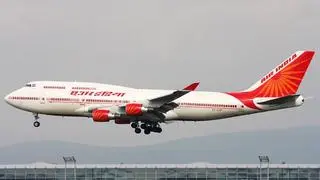Sales on airfares may not be the only way to affordable flying. In fact, you don’t have to wait for the sale season. Just give yourself a little more time to plan your travel.
Advance booking is the most obvious way to save on tickets. However, what is perhaps not as well-known is the extent of the saving. Shilpa Bhatia, Senior Vice President, Commercial, SpiceJet points out that a passenger can avail discounts of up to 50 per cent if she plans her flight 30 to 90 days in advance. “If you plan a year in advance, then a passenger will get very attractive fares as all inventory is parked at the lowest fares,” she adds. But if your job doesn’t allow you the luxury of advance booking, don’t worry. There are more ways to save money. Airlines, especially low-cost ones, also offer discounts if a passenger pre-books meals and excess baggage.
At AirAsia for instance, a flier can save ₹500 to ₹2,500 when she pre-books baggage above the 15kg limit. “At the airport, a guest has to pay a fixed amount of ₹300 for every extra kilo, beyond 20 kg of baggage,” the spokesperson says. For baggage between 16–20kg, the charge is ₹100 per kg. On food too, not only does advance booking make that sandwich or box of cookies lighter on your pocket, but one can also choose from a bigger menu. AirAsia, for instance, provides a wider choice of 12-14 dishes in its online menu. “Passengers can save ₹20-60 depending on the meal,” the spokesperson adds.
Cashing in on the technology that is now available, airlines like SpiceJet are also trying to get more passengers to book online by promising them additional saving. So a SpiceJet customer booking on the airline’s website will save as much as ₹300 per ticket, as the airline does not charge a service fee like an online travel agent. “Almost everything that we sell on the aircraft is on a discount if you pre-book. The reason for that is we want to connect with the customer directly,” says Amit Srivastava, Vice President, Business Development, SpiceJet.
Further, the airline also offers a 20 per cent discount when you buy your meals on the website. “This is offered because of pre-management. Besides, there will also be lesser wastage. Most of it (the food) is perishable. If it is not consumed we have to throw it away,” explains Srivastava. These ancillary revenues are important for the airlines. Though IndiGo did not respond to an email questionnaire,, the Delhi-based airline in April said that its ancillary revenues grew by 27.3 per cent to ₹2,001.99 crore, in the fiscal 2015-16.
The Directorate General of Civil Aviation allows airlines to charge for preferential seating, meals (apart from drinking water) and charges for using lounges. Airines also charge extra if one checks in sports equipment and musical instruments.
SpiceJet’s ancillary revenues have increased to 12 per cent of its revenues, from about 4 per cent in October last year. “It does seem that passengers are getting into the behaviour of pre-buying and saving,” Srivastava adds.







Comments
Comments have to be in English, and in full sentences. They cannot be abusive or personal. Please abide by our community guidelines for posting your comments.
We have migrated to a new commenting platform. If you are already a registered user of TheHindu Businessline and logged in, you may continue to engage with our articles. If you do not have an account please register and login to post comments. Users can access their older comments by logging into their accounts on Vuukle.